Once in a while a release lands in your ears that grasps you and won’t let you go, and this time for me it’s Izanagi & Izanami by Mōshonsensu. One of the reasons is that after playing it multiple times, my thoughts and expectations have managed to be overwritten every time I put it on.
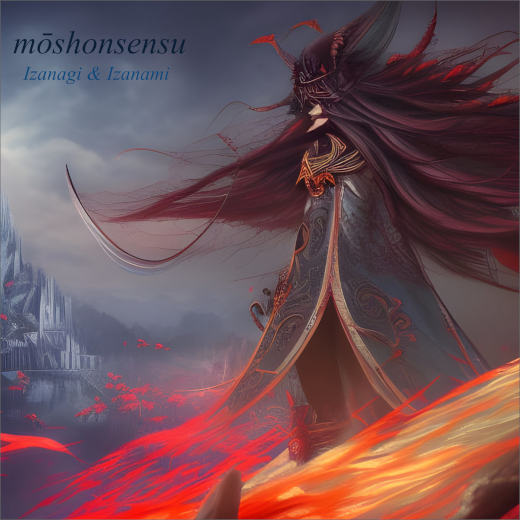
Structures are torn apart through their natural entropy
This one has taken me quite some time to write, and it’s not for my normal reasons of procrastination or laziness (okay, maybe I have been a bit slack), rather that I just didn’t know how to express what I wanted to say. Once in a while a release lands in your ears that grasps you and won’t let you go, and this time for me it’s Izanagi & Izanami by Mōshonsensu. One of the reasons is that after playing it multiple times, my thoughts and expectations have managed to be overwritten every time I put it on. Things that I previously thought are scattered like dust in the burst of a speaker cone form new opinions, some of which mature yet others dissipate before even the mildest take shape.
This constant creation and destruction has ended up being highly reflective of the album’s namesake. Deities of Japanese mythology, both of creation but also of life and death respectively, I feel that they both get their place on this release. There’s a real sense of world-building and invention, yet all the time the structures are torn apart through their natural entropy, just from the sheer length of each of the tracks.
Make no mistake, it is an undeniably long album. At an average track length of just over 15 minutes, this is the product of someone who sought to play, experiment, discover, and see what came out of it. I know from experience that sometimes you get into the zone with these types of ‘session’ compositions and it’s often hard to know what to include and what not to. In those circumstances it’s more than acceptable to produce tracks of this length otherwise you’re truly at risk of not expressing yourself; the danger is that you can be left empty even though you’re still full of ideas.
The length lends itself to the slow burn approach and you need look no further than the first track to really experience this—the lucid sounds of Japanese rail stations intermingling with the cautious approach of a slow and steady beat and major key pad is enough to make you lose yourself completely. Anyone who’s been to Japan will know that some things stick with you forever, and as I have a love of trains, it’s the sound of stations and rolling stock that won’t leave me alone. The sheer musical nature of the Tokyo Metropolitan network defies belief—I’m overjoyed to find it put to good use here.
It’s the use of environmental sounds that has me completely hooked within the first few seconds—I have a long-standing love of its use in electronic music. Notwithstanding that the use of sampling in general—right back to the days of Pierre Schaeffer and his work with Musique concrète—has been instrumental in the developments of modern production techniques, I’ve always felt it takes a special kind of perseverance and vision to be able to use much more raw pre-existing recordings in your work and get away with it. Utilizing it isn’t anything new, but oh my, do you need cojones to use it and skill to use it well.
This is a huge bucket of smaller experiences ::
Pointless would it be to try and pull apart each track as I’m often tempted to do with things passed my way. This is a huge bucket of smaller experiences, things to notice each time you audition. Whether this be yet more Japanese influence with the use of frantic taiko, evocations of video game soundtracks with almost Hyrulean synth-vocals, or the ominous undertones of “Chika,” reminiscent of Abigail Mead’s work on Full Metal Jacket—there’s something that stands out more than everything else each time you pass through the release.
I’ve spoken before of ‘journey tracks’ and there are plenty here—in fact the whole album is made up from them. At times it’s often like the best bits of FSOL in their exploratory moments, trippy yet grounded and engaging all the way. It’s a space opera, but in the sense that it’s full and massive—agoraphobics should pass this by.
For those of you that seek absolute structure in your music then the closest thing you’re going to get is the last track, “Aware.” A melody that channels the best bits of the last two decades of electronica, it manages to break itself down into such a personal piece with beautiful pace that it’s perfectly placed as the ending and makes things very hard to let go.
Having had the pleasure of hearing some of Mōshonsensu’s work before on various compilations in the last few years, it’s an immense experience for me to get down with something full-length and a perfect opportunity for me to start exploring the back catalog. I fully expect great things to happen based on the strength of this collection and you should too.
Izanagi & Izanami is available on Bandcamp.






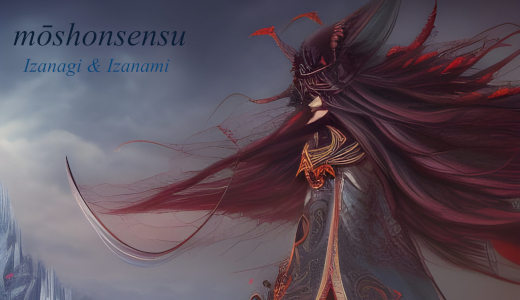




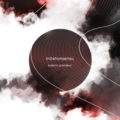
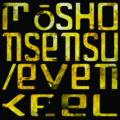



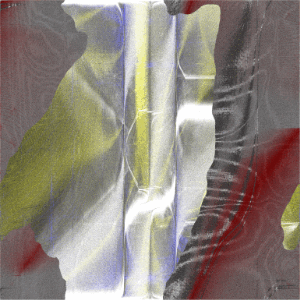

![Pole :: Tempus Remixes (Mute) — [concise]](https://igloomag.com/wp/wp-content/uploads/2025/04/pole-tempus-remixes_feat-75x75.jpg)






![Hasbeen :: Bunker Symphonies II (Clean Error) — [concise]](https://igloomag.com/wp/wp-content/uploads/2025/04/hasbeen-bunker-symphonies-ii_feat-75x75.jpg)
